Stepping into Bad Mama Taipei is not like stepping into a typical restaurant or bar.
The experience is more akin to slipping into a parallel dimension, one where the established rules of interior decor just don’t apply.
For the first few minutes your eyes adjust to the rouge, boudoir lighting. There are oil drums repurposed as tables; furniture made from fishing boat wood; discarded plastic knickknacks positioned as ornaments; a wall-clock labelled, “The time is always now.”
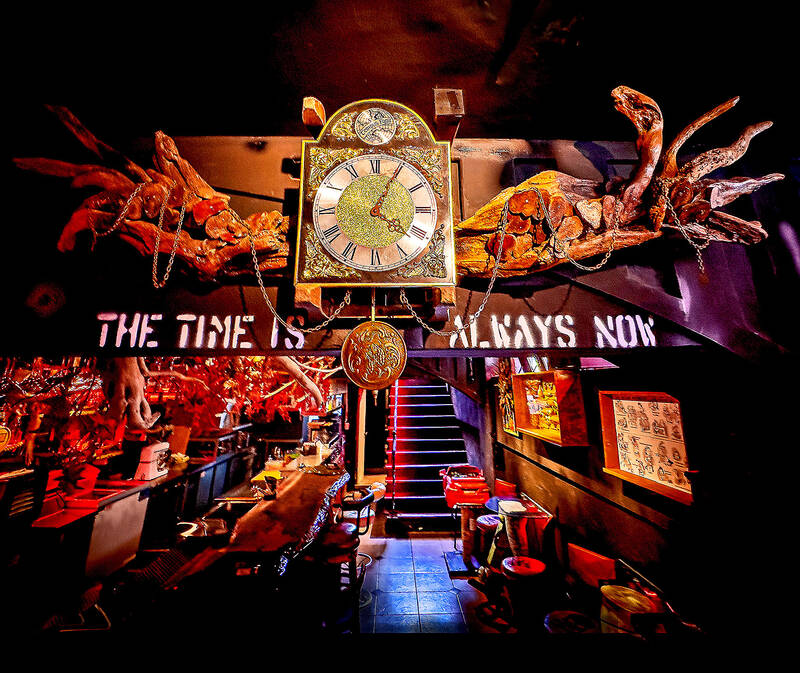
Photo courtesy Adam Hunt
“I found everything along the coast around Keelung,” Australian Adam Hunt says of the driftwood and salvaged heirlooms that decorate Bad Mama Taipei.
“I call it the art of extreme sustainability.”
While the bric-a-brac home furnishings are Hunt’s creations, the unique Japanese-Taiwanese-Western fusion menu, along with the feminine artworks that adorn the walls, are the product of Gemma Lin’s (林淑珍) imagination and experiences.
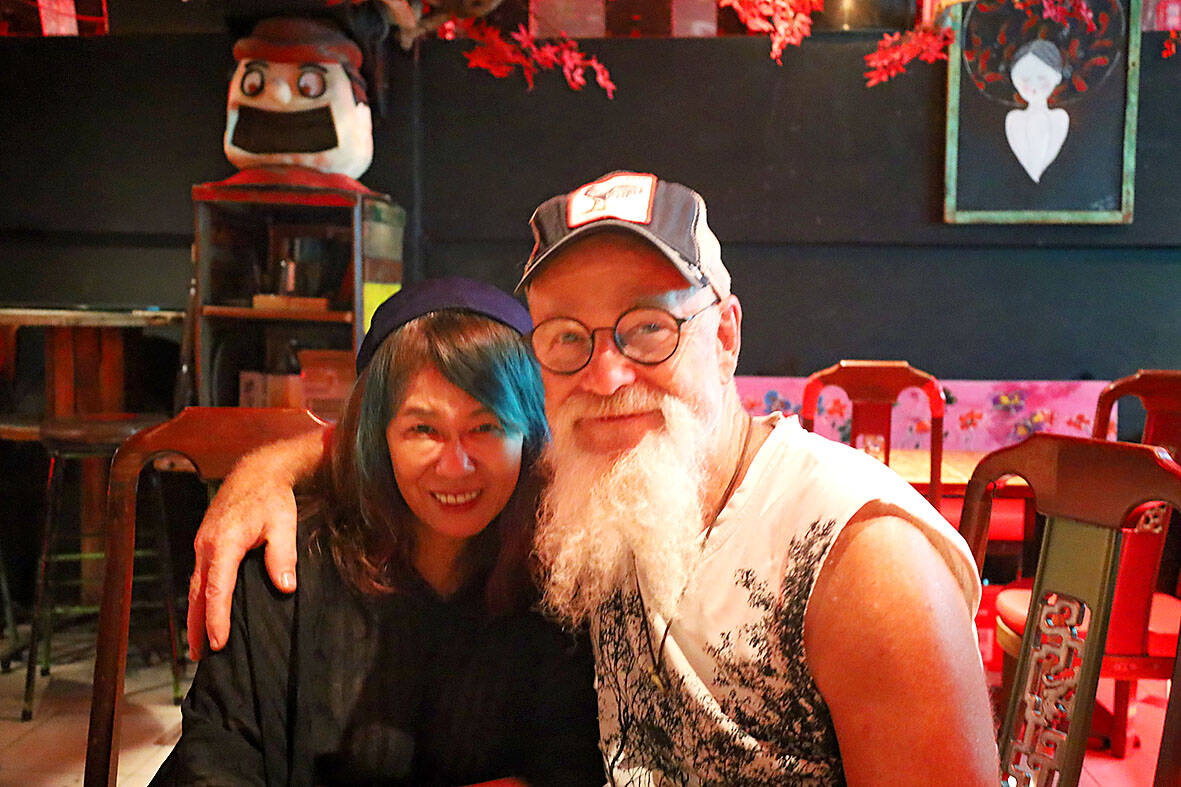
Photo: Thomas Bird, Taipei Times
BAD MAMA RISING
“My grandmother was one of the last women in Taiwan to have bound feet,” says Lin.
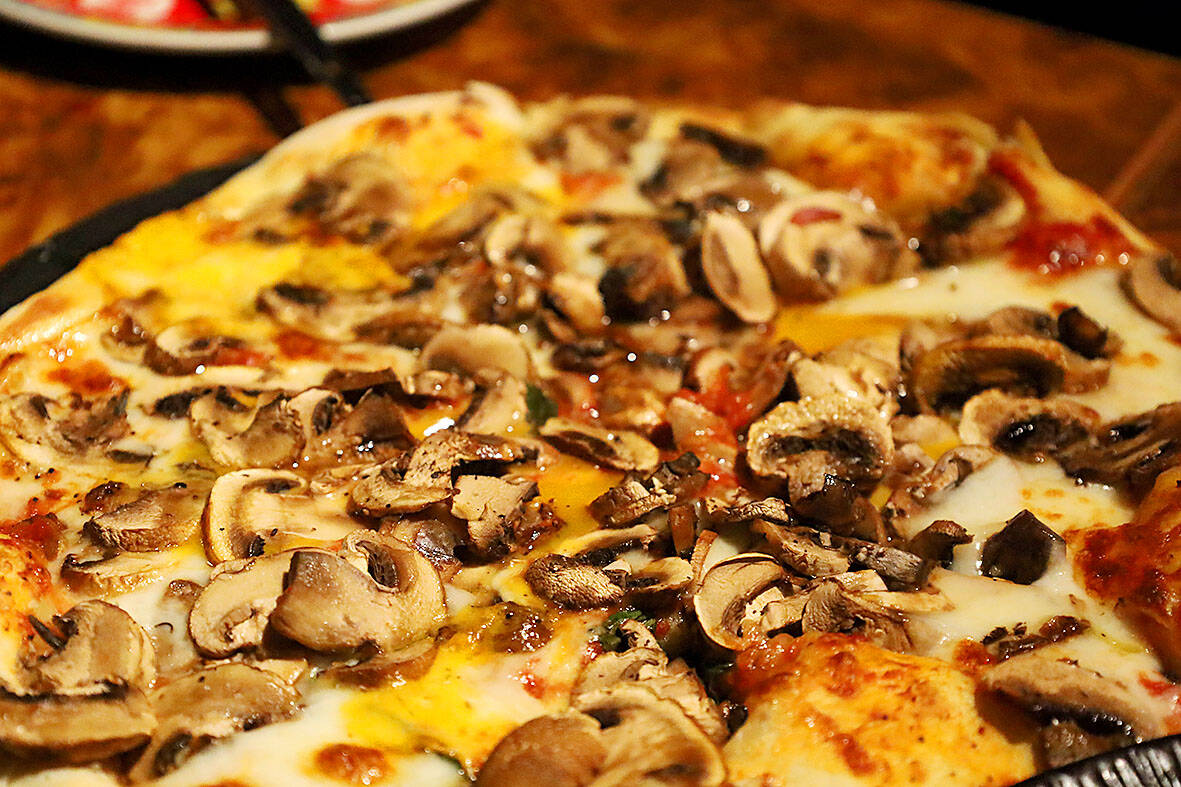
Photo: Thomas Bird, Taipei Times
Her uncle is a local legend, the fisherman who gave his life trying to save a drowning student who has been memorialised in the Righteous Bronze Statue in Yehliu Geopark.
“My father posed for the sculptor,” Lin admits.
Aged 18, Lin moved to Japan to study fashion design. Her introduction to the restaurant industry came while supporting her studies in restaurants and bars, one of which, she says, was owned by the yakuza.
Eventually, she found her way to Australia, and, after more than a decade working in everything from window cleaning to the construction business, opened Li Zai, a Taiwanese restaurant overlooking Bondi Beach.
That’s where she met Adam Hunt.
“I’d worked all over the world in the advertising industry,” Hunt tells the Taipei Times. “I’d come back home and one day I walked past this beautiful Asian restaurant and decided to go inside.”
Lin took Hunt’s order and they hit it off. The rest is history.
“I often joke the advertising drove me to drink, so it’s been a natural transition to the bar business.”
BRAND BUILDING
In 2009, Lin and Hunt decided to combine their creative talents and open a bar in Bondi together.
“Lin told me this wonderful story of the yakuza mistress she’d known in Japan, the Mamasan. So that’s what we called it.”
According to Hunt, Mamasan was an instant hit, tripling in size in the first three years of operation.
The pair eventually sold the name and rebranded as Bad Mama, moving to Surry Hills, where they established their second successful bar.
After a decade working in Sydney’s competitive restaurant market, Lin and Hunt decided to take a few a few months off to take care of Lin’s aging parents in Taiwan.
They touched down in January 2020 and not long after, COVID-19 struck.
“Australia closed its borders to its own citizens,” explains Hunt.
With little else to do, the entrepreneurial duo wound up opening what Hunt calls “the accidental bar.”
Bad Mama Keelung was born in November 2020. Located in the Kanzaiding Fish Market (崁仔頂漁市場), decorated with Hunt’s beach-found furnishings and Lin’s paintings, it became an instant hit with the Instagram crowd.
Lin says that the bar has won numerous awards, which inspired weekenders from Taipei to make the pilgrimage to sample Bad Mama’s barrel-aged cocktails (for our money, try the Mezcal Negroni at NT$400) paired with lightly battered popcorn fish (NT$290) and thin and crispy pizzas (NT$420—NT$500).
CAPITAL VENTURE
“Once we were established in Keelung, I felt we needed to do Bad Mama in Taipei,” says Lin of the post-pandemic plan to move to Taiwan’s capital.
It took them awhile to find a suitable venue for what they dub “a unique destination experience” but when they came upon a basement space just off Chang’an West Rd near the Museum of Contemporary Art, Lin and Hunt set to work designing Bad Mama Taipei.
“We’ve only had three months to put this all together, our soft opening was in July but we’re still planning a hard opening,” Lin says, while pouring a Red Point IPA (NT$280) behind the seven-meter long bar.
It’s hard not to be impressed, even dazzled by what the duo have put together in such a short space of time.
If there’s a problem, it’s that Bad Mama defies categorization: Is it a bar, a restaurant, a music venue, a gallery or all of the above?
For Lin, the chief sell-point is the concept.
“Bad Mama’s is an attitude. We’ve got personality,” she says.
Hunt sees what they’ve created as a “fusion” experience.
“I think our point of difference is that we’re a cool bar with fantastic food and we’re a great restaurant with a really cool bar.”
He says that it’s the “alchemy” of his and Lin’s quirky personalities that translates into “great food and great times” in an utterly unique setting.
Bad Mama will celebrate it’s one month opening tomorrow with a DJ Michael, who will be spinning soul, funk and disco.
To register, go to: shorturl.at/qzHpc
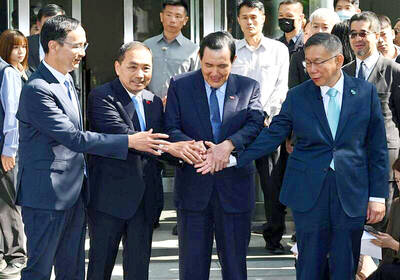
Has the Taiwan People’s Party (TPP) changed under the leadership of Huang Kuo-chang (黃國昌)? In tone and messaging, it obviously has, but this is largely driven by events over the past year. How much is surface noise, and how much is substance? How differently party founder Ko Wen-je (柯文哲) would have handled these events is impossible to determine because the biggest event was Ko’s own arrest on multiple corruption charges and being jailed incommunicado. To understand the similarities and differences that may be evolving in the Huang era, we must first understand Ko’s TPP. ELECTORAL STRATEGY The party’s strategy under Ko was
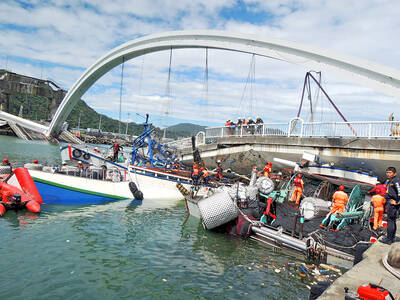
Before the recall election drowned out other news, CNN last month became the latest in a long line of media organs to report on abuses of migrant workers in Taiwan’s fishing fleet. After a brief flare of interest, the news media moved on. The migrant worker issues, however, did not. CNN’s stinging title, “Taiwan is held up as a bastion of liberal values. But migrant workers report abuse, injury and death in its fishing industry,” was widely quoted, including by the Fisheries Agency in its response. It obviously hurt. The Fisheries Agency was not slow to convey a classic government

It’s Aug. 8, Father’s Day in Taiwan. I asked a Chinese chatbot a simple question: “How is Father’s Day celebrated in Taiwan and China?” The answer was as ideological as it was unexpected. The AI said Taiwan is “a region” (地區) and “a province of China” (中國的省份). It then adopted the collective pronoun “we” to praise the holiday in the voice of the “Chinese government,” saying Father’s Day aligns with “core socialist values” of the “Chinese nation.” The chatbot was DeepSeek, the fastest growing app ever to reach 100 million users (in seven days!) and one of the world’s most advanced and
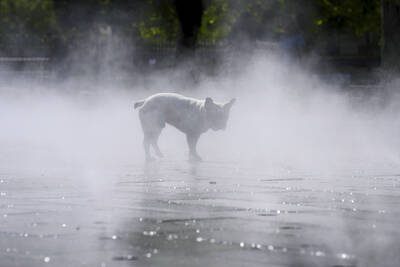
It turns out many Americans aren’t great at identifying which personal decisions contribute most to climate change. A study recently published by the National Academy of Sciences found that when asked to rank actions, such as swapping a car that uses gasoline for an electric one, carpooling or reducing food waste, participants weren’t very accurate when assessing how much those actions contributed to climate change, which is caused mostly by the release of greenhouse gases that happen when fuels like gasoline, oil and coal are burned. “People over-assign impact to actually pretty low-impact actions such as recycling, and underestimate the actual carbon